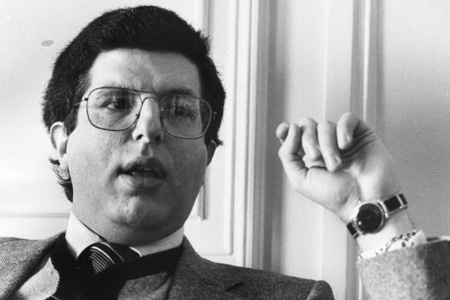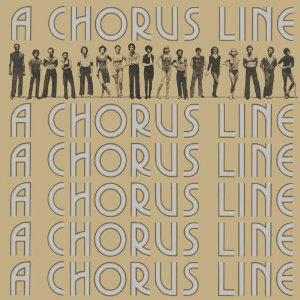“The composer Marvin Hamlisch, who wrote the scores for films and shows including The Sting and A Chorus Line, has died in Los Angeles aged 68,” reports the BBC. “Hamlisch wrote more than 40 film scores including his Oscar-winning score and title song for The Way We Were. In total he won three Academy Awards, four Emmys, a Tony and three Golden Globes.”
The AP mentions scores for Sophie’s Choice, Ordinary People, and Take the Money and Run as well as the Broadway shows The Goodbye Girl and Sweet Smell of Success. “Hamlisch earned his place in American culture through his music, but he also had a place in popular culture. Known for his nerdy look, complete with thick eyeglasses, that image was sealed on NBC’s Saturday Night Live during Gilda Radner’s Nerd sketches. Radner, playing Lisa Loopner, would swoon over Hamlisch…. He leaves behind a legacy in film and music that transcended far beyond notes on the page. As illustrative as the scenes playing out in front of the music, his scores helped define some of Hollywood’s most iconic works.”
Hamlisch had intended to fly to Nashville to see The Nutty Professor, which he recently wrote with librettist/lyricist Rupert Holmes for director Jerry Lewis. According to his official site (sporting a pretty slick design, by the way), he was also working on a new musical called Gotta Dance and was lined up to score Steven Soderbergh’s Liberace, starring Michael Douglas and Matt Damon.
Glenn Kenny: “In terms of versatility, melodic sense, erudition, and humor, no one could touch him, really. This hits kind of close to home, because some people in my life had been working with him recently. Just very, very sad.”
Updates, 8/10: Time‘s Richard Corliss: “At seven he was the youngest musician to be admitted to Juilliard; 10 years later he was playing for Judy Garland and Liza Minnelli; and at 19 he was Streisand’s rehearsal pianist in her breakout show Funny Girl…. Hummable pop tunes are nice, but the kid from Juilliard had more serious loves: movie underscoring, Broadway composing and orchestral concert work. His symphony Anatomy of Peace, which premiered in Dallas in 1991, was based on a 1946 book by Emery Reves, a proponent of world federalism; the piece begins in cacophony and soars in hope toward universal harmony.”
“‘Let me tell you about the word great,’ he told me.” Jasper Rees at the Arts Desk: “‘There are two types of great. One great is you sit down with Michael Bennett [the director of A Chorus Line who died of Aids], you set this incredible goal and you succeed. The other kind of great is you set a very modest goal: we’re putting on this show, all we want is people to have a good time. And if you achieve it it’s also great, but it’s great in a different way.’… Nobody had a greater facility to write songs—some witty pastiche, some unadulterated schmaltz—and there were awards galore, many of them for his numerous soundtracks: only Richard Rodgers also won an Oscar, a Tony, an Emmy, a Grammy and the Pulitzer Prize.”
“A Chorus Line hasn’t dated much,” writes Emma Brockes. “When it was reprised a couple of years ago on Broadway, some 35 years after being written, it had a certain spangly period style to it, but the music’s self-conscious strive to be modern held up. It is one of those musicals you can risk taking people who hate musicals to, all that marmoset-eyed longing and jazz hands undercut by a choppy score and fractured narrative. The songs live on.”
Also in the Guardian, Adam Sweeting: “Steven Soderbergh sought out Hamlisch when he needed music for his 2009 film The Informant!, and found him an ideal collaborator. ‘In the first meeting he described what the orchestra would be, what instruments, how big,’ Soderbergh commented. ‘He knew right from the beginning.'”
“In more recent years, Mr. Hamlisch became an ambassador for music, traveling the country and performing and giving talks at schools. He often criticized the cuts in arts education,” reports Rob Hoerburger for the NYT. ‘I don’t think the American government gets it,’ he said during an interview at the Orange County High School of the Arts in Santa Ana, Calif. ‘I don’t think they understand it’s as important as math and science. It rounds you out as a person. I think it gives you a love of certain things. You don’t have to become the next great composer. It’s just nice to have heard certain things or to have seen certain things. It’s part of being a human being.'”
At BlackBook, Lindsay Eanet posts a few clips, while the BBC gathers tributes from Barbra Streisand, Liza Minnelli, and more.
For news and tips throughout the day every day, follow @KeyframeDaily on Twitter and/or the RSS feed. Get Keyframe Daily in your inbox by signing in at fandor.com/daily.





